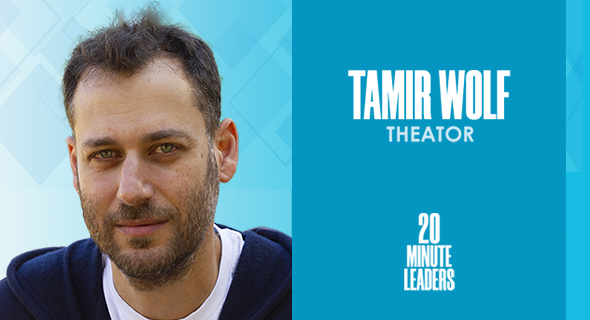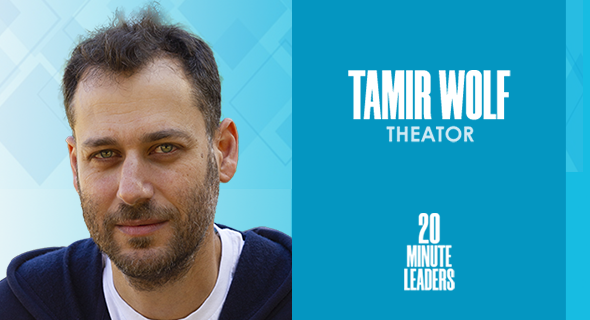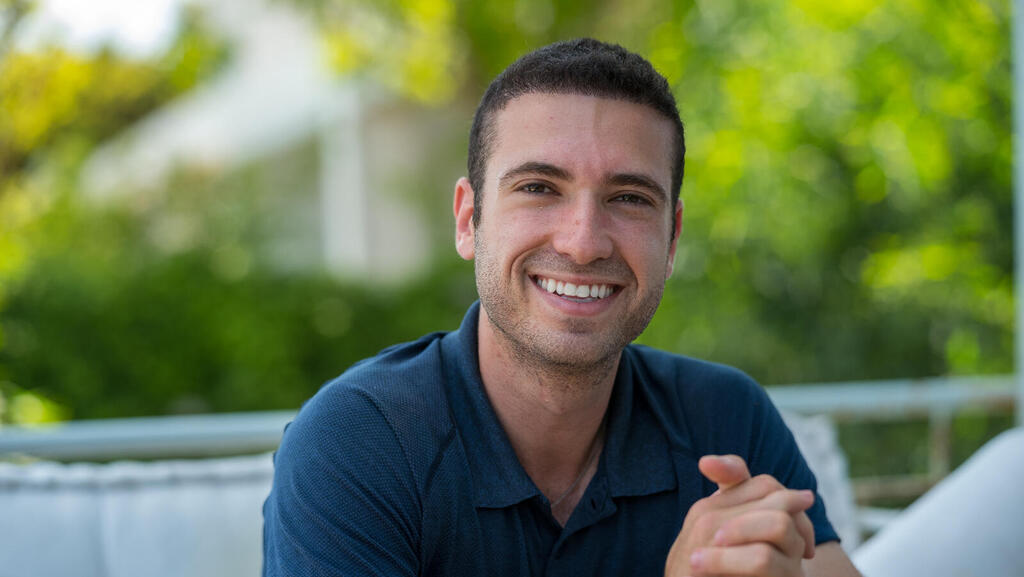
20-Minute Leaders
“Everyone's always told me I'm a late bloomer.”
Having a great team is critical to achieving big goals, says Tamir Wolf, co-founder and CEO of Theator.
Having a great team is critical to achieving big goals, says Tamir Wolf, co-founder and CEO of Theator. That’s something he learned in the Navy, but it applies to his current work in the health field too. He explains that deep tech is dependent on the people behind it. Wolf shares that he’s looking for employees who are excellent at what they do and who also share Theator’s values. He urges people to choose a career path that does good. That’s what he set out to do when he went to med school, but he realized that he could help many more people by building a company. Theator is working to eliminate disparities in surgery based on where patients live or where their surgeon trained so that everyone can have the best treatment. Wolf shares that he was a late bloomer, but that hasn’t stopped him from moving forward.
I really want to hear about who you are as a leader and CEO.
I think if you want to learn more about who I am as a leader, you probably need to talk to my team. But I will share some thoughts and insights that hopefully your audience might appreciate. Throughout my life and my career, everyone's always told me I'm a late bloomer. In Israel, I did ROTC. First I went through med school and then went to the military. I spent quite a bit of time in the Navy. That was an amazing experience. I learned it's really all about the team that you are with. You may have very lofty goals, but ultimately, what gets you through the grind on a daily basis is those on your left and right. That's something that I've taken with me on my journey, even after leaving the military. It really is all about the team and about being there for one another.
Tell me about your passion for medicine, for health, for making an impact.
Life's short and you need to make an impact in whatever you do. I think that a lot of my values and the things that I really believe in come from my grandmother. She was a Holocaust survivor. She raised me. My parents worked a lot. She always wanted to be a doctor, but then when she was 16, she went to Auschwitz. So she never got to achieve that. I got the urge to become a physician. I went to med school with the idea of being able to have an impact on people's lives. After my time in the Navy, I did a back of the envelope calculation. “What is the number of lives that I can actually touch throughout my lifespan?" I realized that building a company is probably a way to have a much broader impact, even though the interaction one-on-one and the ability to save an individual life is so precious. But ultimately, I went through the route of: let's build something that can impact billions of people around the world. I landed at Theator, where our mission is really to save lives by tackling variability and disparity in surgery.
Just last year, I had a personal reminder of how impactful just saving one life can be. I diagnosed myself with cancer. Most of last year, I was dealing with multiple surgeries and with chemo, and I got to really appreciate how my surgeon and my caregivers really had an impact on me. I went to the person who has the most experience in the world around my specific procedure and oncological aspect, and I now need to take his knowledge and capabilities and disseminate them around the world. So that this aspect of "where you live determines if you live" isn't something that remains the case.
How do you put together health and the scale of a startup that's venture capital-backed?
I think it's really about the team. Especially if we are looking at Palo Alto or in Tel Aviv, there's so much talent in these geographic pockets. People that can do so many different things. You can do so many different things, but I think choose the one that potentially has the most impact and actually does good. We've been able to assemble an amazing group of individuals that are like-minded and are focused on our vision of really creating a world where it doesn't matter where you live or where your surgeon trained, you are getting the best type of treatment. That really is at the core of what we are doing at Theator.
Because today, the status quo is that surgery, like medicine, is pretty much an apprenticeship: where someone trained or the patient population they were familiar with really dictates how they are going to practice surgery for the rest of their lives, which obviously has a lot of impact on patients as well. How do you identify best practices? How do you disseminate them? How do you identify individuals who are not up to par from a surgical performance capability and you level them up? All of this can be done today very easily by leveraging technology, which is what we are bringing to the table.
A great group of individuals that are extremely mission-driven—which I think is something that sets Theator apart from a lot of companies around the world—take that expertise, identify best practices, and allow disseminations in ways that are really novel.
The entire reason for Theator being is that a few years ago living in New York, I diagnosed my wife and my previous boss with appendicitis, and I took them to two different hospitals, and the approaches to treatment were very, very different. With my boss, it was clearly evident that decisions were wrong along the way, which led to a near-death experience. With my wife, it was very different. It was 12 hours from the moment we set foot in the emergency room until we were back home. That's when I really started to wonder what is going on and how can it be that in 2015, within a seven-mile distance in New York City, you have a very different approach in treatment for a similar condition.
Tell me more about how you've seen putting together a remarkable team as an impactful part of Theator's journey.
Throughout my personal life, being a part of a tight-knit team that always knows where they are heading and why they are doing what they are doing has been important. At Theator, we really filter for individuals that are extremely accomplished, humble, can do anything that they want to do, and yet choose to spend their time focusing on how to make this place a better place and how to impact individual lives. And I think that has come in extremely handy.
We are four years old. Our first employee came on board on November 1, 2018. We are almost 50 employees. In the span of those four years, we've only had one individual that has opted to leave us, and that was for personal reasons. I think that says a lot about what we are doing, how we are doing, the culture in the company, and our values system at large.
It sounds like you require that they represent excellence. But that's not enough. It's just a foundation. What really counts is their intentionality.
We've got this concept of "Theator DNA." I think that Theator DNA embodies multiple values. We are human-first. So we are doing deep tech, but it depends on the people who create it. If we are humble, if we are kind, if we have empathy, then we can successfully tackle anything that comes our way. Another one of our Theator values is just getting shit done. We work fast and we measure everything and we debrief and we continuously optimize, but we get shit done. Every voice counts. We depend on individuals challenging themselves continuously, voicing their opinions. And also challenging each other in the status quo.
And ultimately it's this concept of shared understanding, where only when we all see the big picture in full and we are transparent and everyone has context can we achieve autonomy. That truly makes a difference and helps us move forward very, very quickly. What we are looking for is individuals with excellence in the specific domain that's only foundational. Even if you are the smartest and the most capable in a specific area, that doesn't cut it unless you have that type of DNA that embodies the rest of the values that I just mentioned.
Michael Matias, Forbes 30 Under 30, is a Venture Fellow at Innovation Endeavors as well as investment Venture Partner at Secret Chord and J-Ventures. He studies Artificial Intelligence and Human-Computer Interaction at Stanford University, and was an engineer at Hippo Insurance. Matias previously served as an officer in the 8200 unit. 20MinuteLeaders is a tech entrepreneurship interview series featuring one-on-one interviews with fascinating founders, innovators and thought leaders sharing their journeys and experiences.
Contributing editors: Michael Matias, Megan Ryan














